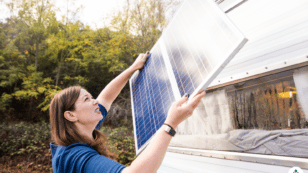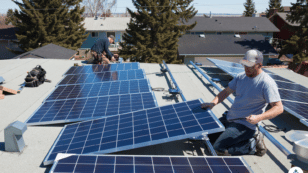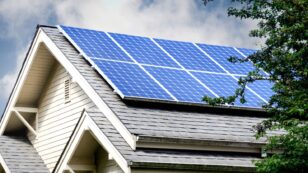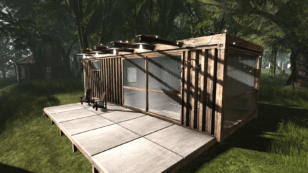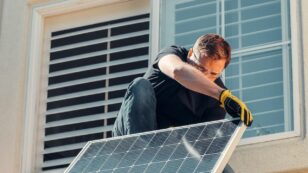
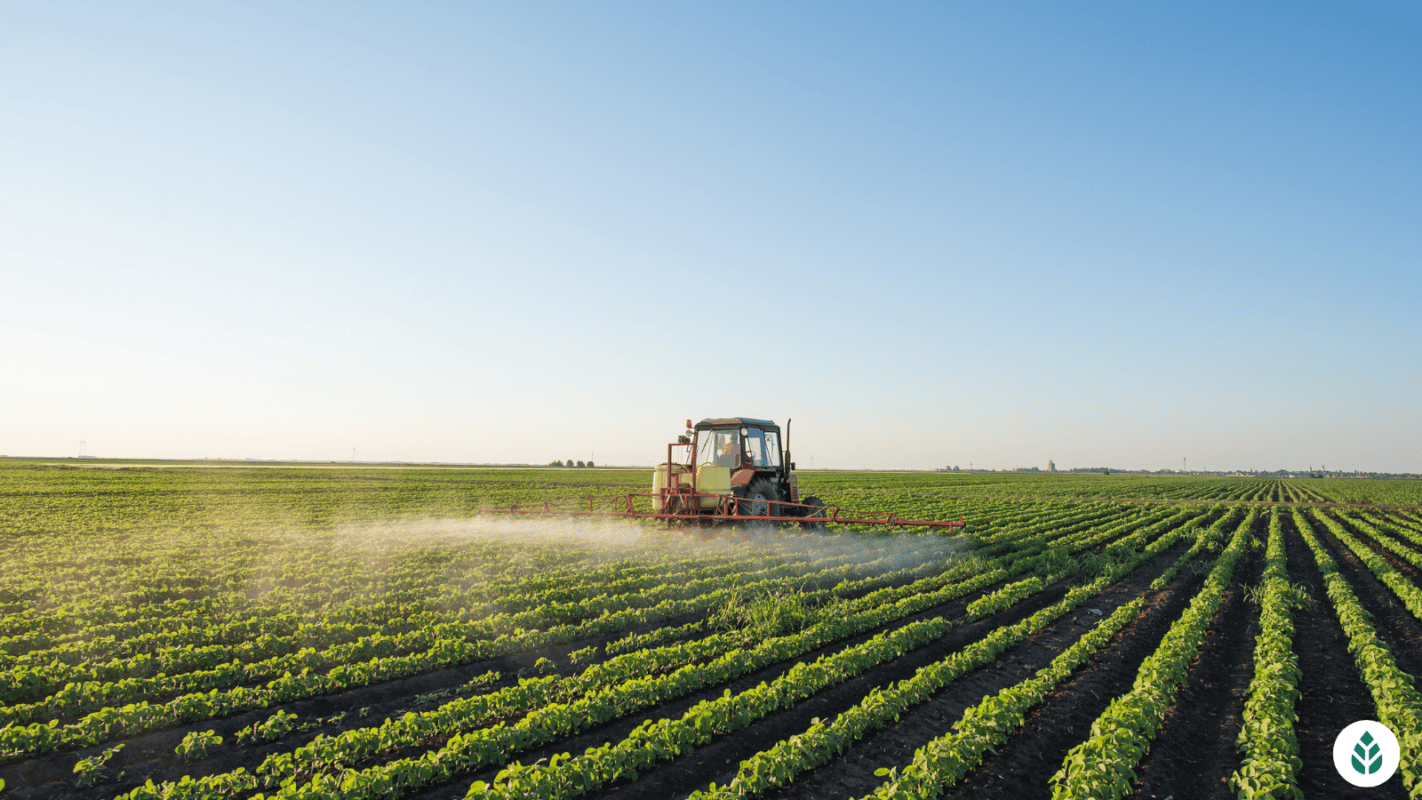
What Are the Best Solar Panels for Farming? Solar for Agriculture Guide (2024)
In this guide to installing solar panels for agricultural use, you’ll learn:
- Why is solar on farmland beneficial?
- Can solar provide suitable power for agricultural businesses?
- What are the top solar panels for use on a farm?
Each product and or company featured here has been independently selected by the writer. You can learn more about our review methodology here. If you make a purchase using the links included, we may earn commission.
Converting to clean energy has been growing in popularity across the country, with more homeowners finding ways to go solar now than ever before. Many people don’t realize that solar panel systems are good for more applications than just residential ones.
Owners of farms and other agricultural businesses can take advantage of renewable energy as well. In this guide to solar energy systems for farms, we’ll discuss the benefits and different applications of solar panels for farming, as well as the top panels for the job.

Blue Raven Solar
Pros
- Industry-leading in-house financing
- Competitive pricing
- Excellent reputation
Cons
- Doesn't offer solar batteries (coming 2022)

Blue Raven Solar
Pros
- Industry-leading in-house financing
- Competitive pricing
- Excellent reputation
Cons
- Doesn't offer solar batteries (coming 2022)
Why Is Solar Beneficial for Farms?
Before we dive into the top panels for agricultural use, it’s helpful to understand how solar is a good match for farmland. In the sections below, we’ll discuss some of the primary benefits of solar on designated farmland or rural land, and how landowners can use solar to increase energy savings.
Solar Is Easy to Install On Farmland
The first benefit, which might not seem obvious at first, is that it’s relatively straightforward to install ground-mounted solar modules on agricultural land.
If you’ve grown crops on your land in the past, the land has already been leveled, which provides a nice even surface for installing solar panels.
On undeveloped and unused land, topographical variation can make installing ground-situated solar farm systems more challenging. In many cases, unleveled land requires leveling prior to installation, and this process can be quite expensive. Thankfully, this is not a concern on previously used farmland.
The Federal Government Incentivizes Solar Installations On Farms
There are some solar incentives and tax credits available for solar installations for agricultural use.
- First, the United States Department of Agriculture (USDA) offers the Rural Energy for America Program (REAP), which provides grants and affordable solar financing opportunities to farms looking to go solar.1
- Second, the federal solar investment tax credit (ITC) currently provides a 30% credit for your entire system cost to your personal income taxes. The ITC can drastically reduce the amount you pay to bring solar to your farmland.
- Finally, many states have additional solar benefits specific for agrivoltaic systems.
Just keep in mind that you have to purchase or finance your system to get these credits and benefits, in most cases. Leasing your farmland to a solar company rarely gives you access to these benefits, even on agricultural land.
Vegetation Can Increase Solar Performance
The efficiency of solar panels decreases as temperature increases, as is the case with many electronics. Most solar modules lose around 0.3% to 0.5% efficiency for every degree (Celsius) the temperature increases above 25 degrees Celsius — 75 degrees (F).
Since solar panels are exposed to constant sunlight for most of the day, they very often reach temperatures well above the ambient air temperature, which means they will lose significant efficiency — sometimes up to 25% — in hot temperatures.2
On farms, where ground systems are more common, the vegetation below can help keep the soil cool, which in turn keeps solar panels above cooler. This increases the efficiency and energy output of your solar project.
Solar Is Suitable for Off-Grid Use
Bringing electricity to rural farmland is often a challenge due to the distance between electrical sources and the areas electricity is needed.
One of the most convenient uses of solar on farms is to provide power to non-grid-connected areas. Solar panels coupled with inverters and solar batteries can provide sufficient power for most farming applications without the need for a nearby connection to the grid.
There are virtually no restrictions on how far from a nearby electrical source you can install agrivoltaic systems.
Solar Reduces the Cost of Bringing Electricity to Rural Areas
Even farms that are near electrical service can have portions of the land — like where electrical pumps are needed for irrigation — that are far from energy sources. Without solar, running electrical lines to these areas can be prohibitively expensive.
By installing small, off-the-grid solar farm systems, you can drastically reduce costs and generate energy exactly where you need it on your land.
How Can Solar Be Used On Farms?
Solar is beneficial on farms for many reasons, and there are also quite a few applications for solar panels that can make them even more appealing for agricultural use. We’ll discuss how you can use solar on farmland in the sections below.
Solar Systems Can Provide Electricity in Remote Areas
As mentioned above, small solar arrays can be used to provide energy in areas on your land where running electrical wires could be impractical. Some examples include:
- Providing power to greenhouses or livestock outbuildings
- Providing heated water for cleaning
- Providing energy for crop drying
- Providing remote power for electric fences
- Providing power for water pumps for irrigation systems
- Providing power for lighting
- Providing energy for residential buildings on farmland
Both off- and on-grid solar systems can be beneficial on farms. On-grid rooftop solar systems can offset the electricity use of your home, reducing your reliance on fossil fuels and increasing overall sustainability. But if you live in a remote area without a connection to the grid, off-grid solar energy systems provide a great alternative energy source.
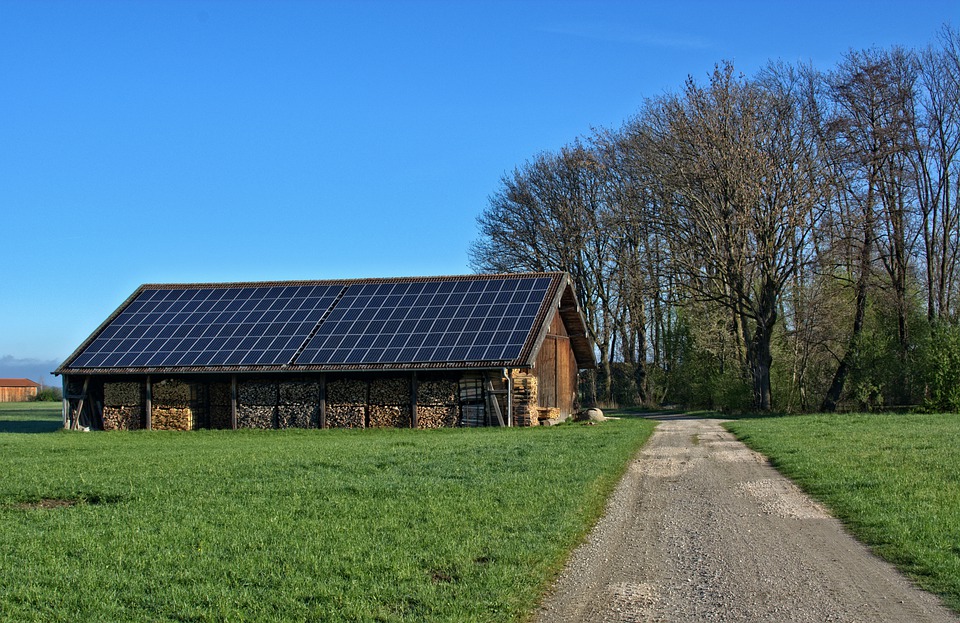
Solar Panels Can Provide Shade for Specific Crops
While just installing solar panels on your farm can be beneficial enough to justify the cost, some farmers use the protection from the sun provided by the panels to help grow crops that thrive in the shade. This process is called agrivoltaics.
In some cases, growing high-value shade crops can help offset the cost of going solar and help diversify your harvest. Some farmers even use solar panels to help maintain conditions for pollinator and vegetation habitats.
Solar Panels Provide Off-Grid Energy for Irrigation Systems
Among the many uses for electricity on farms, powering irrigation systems is one of the most crucial. As mentioned above, solar can be used to provide power to water pumps for irrigation, but coupling solar batteries with your panels for this purpose means you’ll never be negatively affected by a power outage.
Losing power and your ability to water your crops can be catastrophic, so it’s highly beneficial to use solar batteries as backup power sources for your irrigation systems.
Solar Panels May Help Regulate Microclimates On Farms
Solar panels create shade on the soil beneath them, which naturally keeps the temperature underneath lower during the day. At night, heat irradiating from the earth will partially reflect toward the ground by the panels above. This helps regulate the temperature of the soil, which can be beneficial for some crops.
If you grow vegetables, legumes or other plants that do better in stable climates, you might benefit from installing ground solar on your farm, as it can produce localized climates suitable for those crops.
Solar Modules Can Help Recover Land
Finally, solar development can help provide a purpose for your land as the soil recovers from extended use.
After a portion of land is used to grow crops and the natural nutrients are depleted, the soil takes time to recover. While this recovery process is taking place, the land can serve little purpose for crops and livestock.
Installing ground-mounted solar panels on recovering farmland helps provide the space with a purpose that will benefit you and the rest of your land while it recovers.
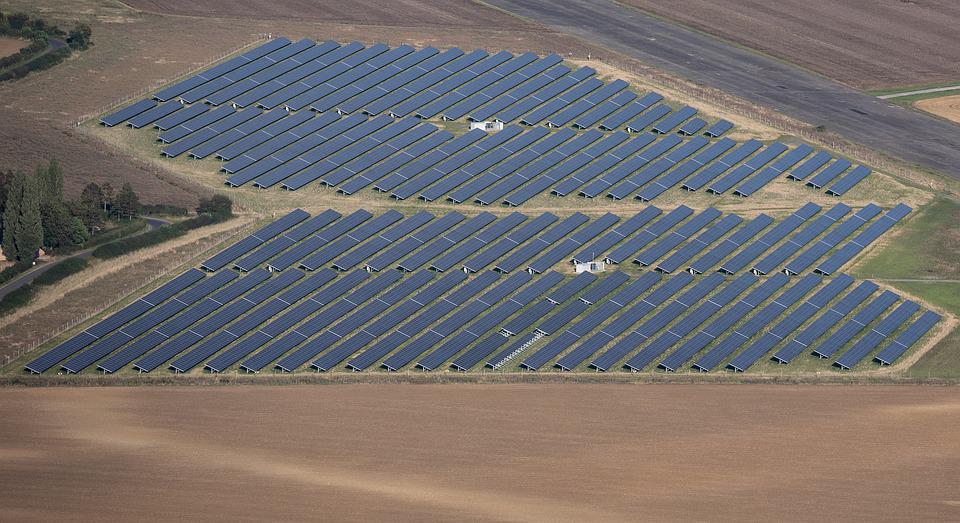
What Are the Best Types of Solar Panels for Farms?
When it comes to choosing solar panels for use on your farm, there are a few things that can have an impact on the type of panels that are best suited for you.
If you’re using an off- or on-grid system to provide power to your main living quarters, then high-efficiency solar panels are likely to be your best bet. In that case, monocrystalline panels — also called mono panels — are ideal.
High-efficiency mono panels are ideal where you may have limits on space, such as with rooftop solar installations. They’re the most efficient panel type and will provide the most energy per panel, but are more expensive.
If space is not an issue, such as ground-mount arrays on large pieces of rural land, you could save some money by opting for polycrystalline panels — also called poly panels. They come with lower installation costs but produce less power.
Poly panels can be ideal for:
- Providing power for light-duty irrigation systems
- Providing energy for water heaters
- Providing power for greenhouses or livestock buildings
- Providing grid-tied power for electric fences
- Providing power in solar arrays on large pieces of land
Since poly panels are less efficient than mono panels, they’re better suited for grid-tied systems, where maximum energy production isn’t required.
Finally, you can use thin-film panels for other light-duty and non-essential electricity needs. For example, thin-film panels are great for gridless lighting and some smaller, non-essential water pumps for irrigation.
What Are the Best Solar Panels for Agricultural Use?
Even if you understand the type of solar panel that would suit your needs best, you might not know which specific panels will work for your purposes. If you’re still confused as to which panels are best for use on your farm, then having individual panel brands will likely make your decision more manageable.
In the sections below, we’ll include some specific recommendations for monocrystalline, polycrystalline and thin-film panels for agricultural use.
1. Trina Vertex — Best Monocrystalline Solar Panel
Trina Solar manufactures some of the most powerful industrial-scale panels in the industry, ideal for agricultural installations where space may not be limited. These bifacial panels are very large, so they won’t work well for residential rooftop installations.
The Vertex Series boasts a power rating above 600 watts, making them an excellent option for power output in both off-the-grid and grid-tied solar arrays on a farm.
These panels come with a 30-year power warranty that covers output and degradation. As such, you can maintain peace of mind that your panels will function as intended and provide optimal energy generation for decades after installation.
2. Canadian Solar Hiku — Best Polycrystalline Solar Panel
The Hiku panels from Canadian solar come in both a monocrystalline and polycrystalline option. The poly option has an efficiency of over 17%, which is excellent for this style panel. The Hiku panels are also affordable, especially for the value, which helps keep costs down when setting up multiple power supplies with no grid connection.
The utility-scale (community solar) and commercial solar installation warranty for workmanship and durability for these panels is just 12 years. However, these panels have a 25-year guarantee for power production, so the energy generation is guaranteed for quite some time after the installation process.
3. Renogy 100W Flexible Solar Panel — Best Thin-Film Solar Panel
Finally, the 100W flexible solar panel from Renogy is a great option for light-duty, off-grid use for applications like lighting and small irrigation pumps. This panel has an efficiency of 14.9%, which is outstanding for a thin-film panel.
This panel is suitable for DIY solar installations. Installing these panels yourself won’t void the performance guarantee, which covers energy production as follows:
- Guaranteed 95% efficiency after 5 years
- Guaranteed 90% efficiency after 10 years
- Guaranteed 80% efficiency after 25 years
What You Should Know Before Choosing Solar Panels for Your Farm
Before you decide which panel type or brand is right for you, there are a few things you should think about to help ensure you get sufficient energy for your needs and avoid overpaying for your solar PV system. We’ll discuss some important considerations below.
What Kind of Power Do You Need?
One of the first things you should consider is the amount of power you expect your panels to provide. If you’re using your panels to provide electricity to small irrigation pumps or lighting, you can likely save yourself a lot of money by choosing a poly or thin-film panel.
If you’re looking for a fully off-grid solar power system to provide power to your main living quarters, large-scale or essential irrigation pumps or other crucial equipment that demands constant access to power, then monocrystalline panels are your best option.
You can also maximize your power production by installing sun trackers to move your panels in sync with the sun’s trajectory, as well as high-capacity solar batteries.
If your energy needs fall somewhere in the middle, polycrystalline might be a happy medium.
Another consideration to make when it comes to the power you require is the performance warranty that is included with your panels. Longer coverage or a higher guaranteed efficiency rating over time is best if you demand a large amount of electricity.
Where Do You Plan On Using Your Panels?
If you’re setting up a grid-tied system, then the type of panels you choose is less important. This is because you can always fall back on the electrical grid for power if your panels underproduce.
However, it’s helpful to remember that high-efficiency monocrystalline panels will usually save you the most on electric bills, even when your system is tied to the grid.
If you’re coupling your panels with solar storage systems for off-grid use, then you need to consider the importance of maintaining constant access to energy. If a power outage is unacceptable, mono panels are still best. If you can deal without power at the off-grid station for some time, then poly or thin-film panels could work as well.
Comparing authorized solar partners
-
- Industry-leading in-house financing
- Competitive pricing
- Excellent reputation
- Doesn't offer solar batteries (coming 2022)
A+Best Solar Financing2014Trina Solar, Canadian Solar, SolarEdge, Silfab, SunPower25-year manufacturer warranty; 10-year workmanship warranty, 2-year production guarantee
Having trouble deciding? Click below and use our process to receive multiple quotes instead:

 233k
233k  41k
41k  Subscribe
Subscribe 





